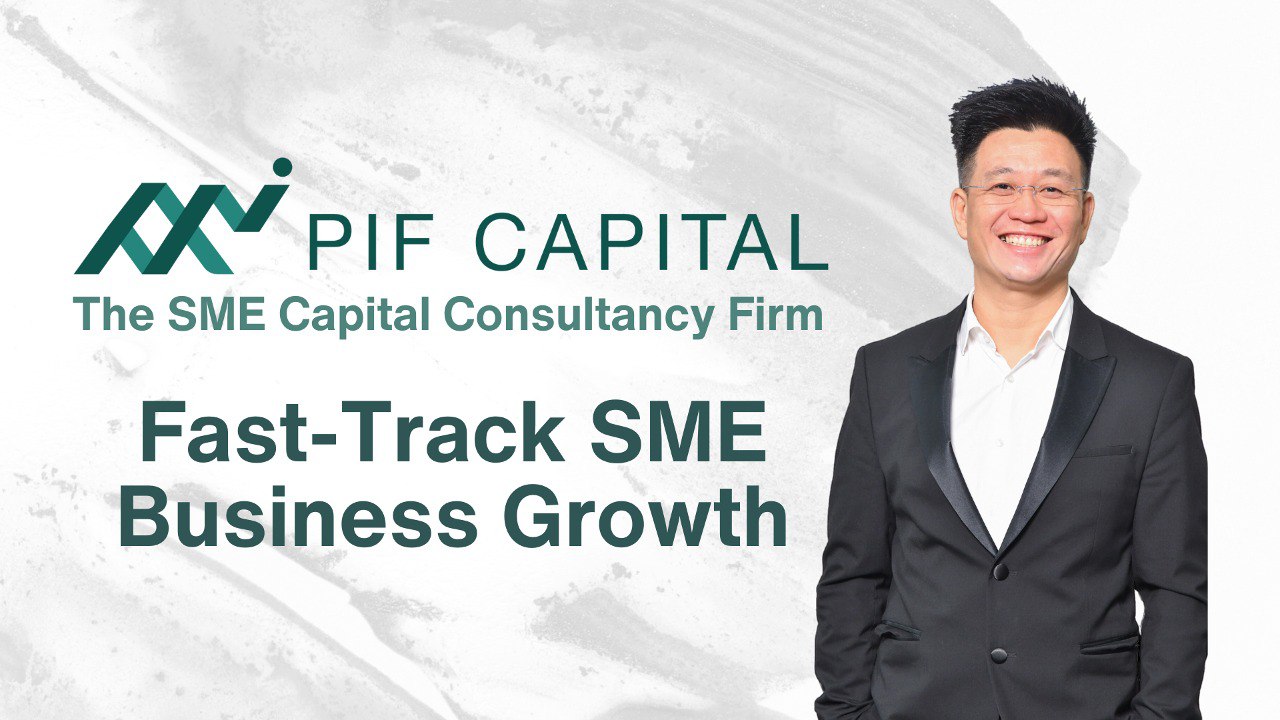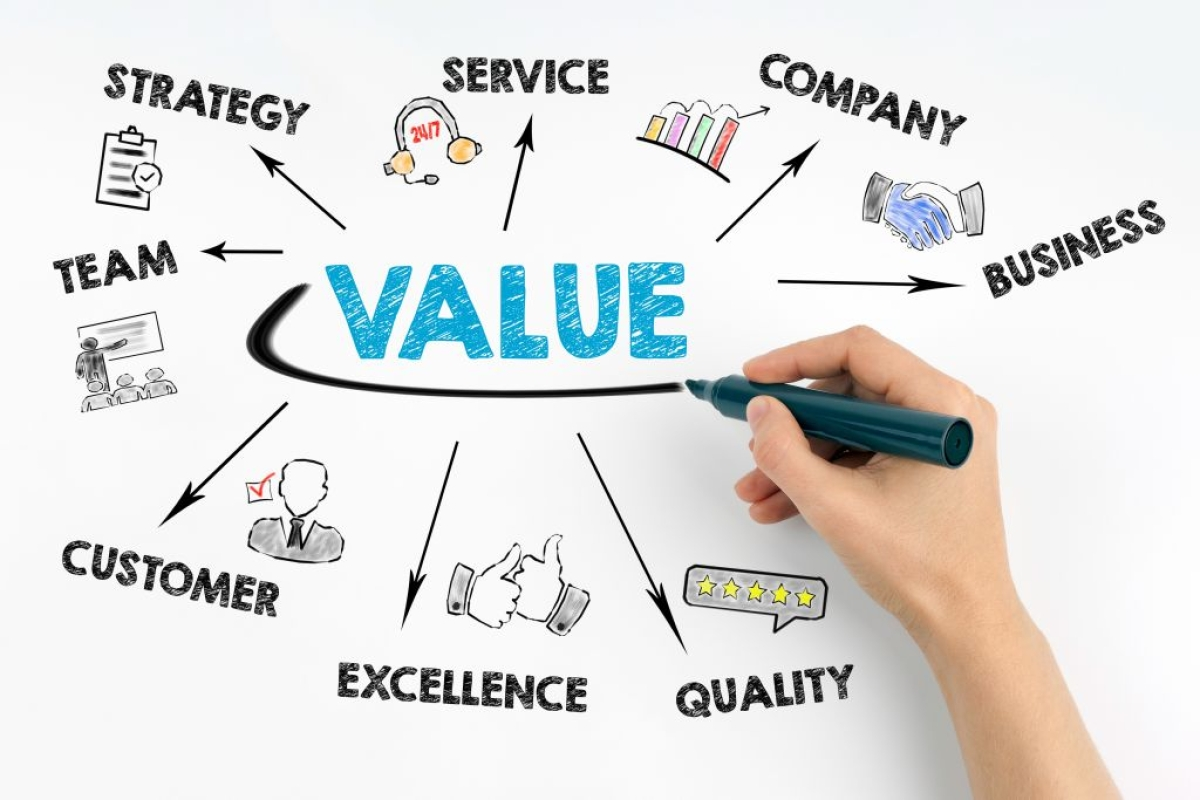Having a business valuation is crucial for Singapore's small and medium-sized enterprises (SMEs). It helps business owners understand their company's worth, which is essential for making informed decisions.
PIF Capital offers expert business valuation services, providing accurate and reliable assessments tailored to the unique needs of SMEs. This article explores the importance of business valuation, the benefits of choosing PIF Capital, and how their process works.
Key Takeaways
- Business valuation helps SMEs understand their company's value.
- PIF Capital provides expert and reliable business valuation services.
- Accurate valuations support strategic decision-making and growth.
- PIF Capital's process includes consultation, analysis, and reporting.
- Choosing PIF Capital ensures tailored services for Singapore SMEs.
Understanding Business Valuation for SMEs

Business valuation is the process of determining the market value of a company. For small and medium-sized enterprises (SMEs), this is crucial for various reasons, including securing financing, planning for growth, and preparing for a sale or merger. Accurate valuation helps SMEs make informed decisions and attract potential investors.
Understanding the key concepts in business valuation is essential for SMEs. These include:
- Market Value: The estimated amount for which a business should exchange on the valuation date.
- Net Present Value (NPV): A method that calculates the value of a business based on its expected future cash flows, discounted back to their present value.
- Earnings Before Interest, Taxes, Depreciation, and Amortization (EBITDA): A measure of a company's overall financial performance.
For SMEs, knowing their business value is vital. It helps in:
- Securing Financing: Lenders and investors need to know the value of a business to provide funding.
- Strategic Planning: Helps in making informed decisions about growth and expansion.
- Exit Strategy: Essential for planning a sale, merger, or succession.
SMEs often face unique challenges in valuation due to their size and market position. Accurate valuation can help overcome these hurdles and provide a clearer picture of the business's worth.
Common Valuation Methods
Several methods are commonly used to value SMEs, including:
- Asset-Based Approach: Calculates the value based on the company's assets and liabilities.
- Income Approach: Focuses on the expected future earnings of the business.
- Market Approach: Compares the business to similar companies that have been sold recently.
Each method has its advantages and limitations, and often, a combination of methods is used to arrive at a more accurate valuation.
Understanding Business Valuation Through PIF Capital

PIF Capital boasts a team of seasoned professionals with extensive experience in business valuation. Our experts have a deep understanding of the unique challenges faced by SMEs in Singapore. This expertise ensures that every valuation is accurate and reliable, providing a solid foundation for strategic decisions.
Client-Centric Approach
At PIF Capital, we prioritize our clients' needs. Our client-centric approach means we tailor our services to meet the specific requirements of each business. We believe in building strong relationships and providing personalized solutions that drive success.
That's how we have build over 40,000 SME community member and 10,000 community partners across 10 different countries around Asia.
Proven Track Record
PIF Capital has a proven track record of delivering high-quality valuation services. Our success stories include numerous SMEs that have benefited from our accurate assessments. These success stories highlight our commitment to excellence and our ability to unlock the full potential of businesses.
The Valuation Process at PIF Capital
The first step in the valuation process at PIF Capital is the initial consultation. During this phase, we gather essential data about your business. This includes financial statements, operational details, and market conditions. Our team ensures that all relevant information is collected to provide a comprehensive assessment.
Once the data is collected, our experts analyze it using various valuation techniques. These methods include discounted cash flow analysis, comparable company analysis, and precedent transactions. Each technique offers unique insights, helping us to determine the most accurate value for your business.
After the analysis, we compile our findings into a detailed report. This report includes our valuation, the methods used, and our recommendations. We also provide actionable insights to help you make informed decisions. Our goal is to ensure you have a clear understanding of your business's value and the steps you can take to enhance it.
At PIF Capital, we believe that a thorough and accurate valuation is crucial for strategic decision-making and long-term success.
The Impact of Accurate Valuation on Business Growth

Accurate business valuation is crucial for strategic decision making. It provides a realistic starting point for discussions and can reveal unexpected insights. Knowing the true value of a business helps owners make informed decisions about expansion, mergers, or acquisitions. It also aids in identifying undervalued assets that can be capitalized on.
Investment and Funding Opportunities
A precise valuation opens doors to investment and funding opportunities. Investors and lenders are more likely to invest in a business that has a clear and accurate valuation. This is especially important for SMEs looking to attract capital for growth. An accurate valuation can highlight the benefits of investing in a business, similar to how investing in dividend stocks can provide passive income and long-term growth.
Long-Term Business Planning
For long-term business planning, an accurate valuation is indispensable. It helps in setting realistic goals and benchmarks. Business owners can plan for the future with a clear understanding of their company's worth. This is crucial for setting the right price and ensuring sustainable growth.
Accurate business valuation is not just about numbers; it's about understanding the true potential and worth of a business. This understanding can drive growth and success in the long run.
Navigating Challenges in Business Valuation

Business valuation can be tricky, and there are several common pitfalls that companies often face. One major issue is overestimating future earnings, which can lead to inflated valuations.
To avoid this, it's crucial to use realistic projections based on historical data and market conditions. Another common mistake is neglecting to consider all liabilities, which can result in an inaccurate valuation. Always ensure that all debts and obligations are accounted for.
Regulatory and Compliance Issues
Navigating the regulatory landscape is another significant challenge in business valuation. Different industries have different regulations, and failing to comply can lead to legal issues and financial penalties. It's essential to stay updated on the latest regulations and ensure that your valuation methods are compliant. This is particularly important for SMEs, which may not have the resources to easily adapt to regulatory changes.
Adapting to Market Changes
The market is always changing, and valuations need to adapt accordingly. Economic fluctuations, technological advancements, and shifts in the consumer behaviour can all impact a business's value. To stay ahead, companies should regularly update their valuations and be prepared to adjust their strategies. This proactive approach can help businesses navigate the complexities of the market and make informed decisions.
Future Trends in Business Valuation
The field of business valuation is rapidly evolving with the integration of new technologies. Artificial intelligence (AI) and machine learning are being used to analyze vast amounts of data more accurately and efficiently. These technologies help in identifying patterns and trends that were previously difficult to detect. Blockchain technology is also making its mark by ensuring transparency and security in financial transactions, which is crucial for accurate valuations.
Market conditions are constantly changing, and business valuation methods must adapt accordingly. The rise of new industries, such as renewable energy and biotechnology, requires updated valuation techniques. Additionally, the global economic landscape, including factors like inflation and interest rates, plays a significant role in determining a company's value. Understanding these market dynamics is essential for accurate business valuation.
Environmental, Social, and Governance (ESG) factors are becoming increasingly important in business valuations. Investors and stakeholders are now looking beyond financial metrics to assess a company's long-term sustainability and ethical practices. Companies with strong ESG profiles often enjoy higher valuations as they are perceived to be more resilient and better positioned for future growth. This shift towards sustainability is reshaping the way businesses are valued.
The future of business valuation is not just about numbers; it's about understanding the broader context in which a business operates. From technological advancements to evolving market dynamics and sustainability considerations, these trends are shaping the future of how businesses are assessed and valued.
Conclusion
In conclusion, PIF Capital's business valuation services stand out as a vital resource for SMEs in Singapore. Their commitment to accuracy and reliability ensures that businesses receive trustworthy assessments, helping them make informed decisions.
At PIF Capital, we fast-track investors, SMEs, and business owners with the power to earn higher profits through IPO (initial public offering).
Jonathan Por; our Founder and Chairman of PIF Capital is a serial entrepreneur with 30 years of experience. Throughout the years at PIF Capital, we have built an exclusive capital community with over 40,000 SME community members, and share formulas created by PIF Capital such as the CPTK(Capital, Professional, Talent, Keymanship) model, 3F(Friend, Family, Fans) model, and the ABC(A+ entrepreneur, Business model, Capital) model.

By leveraging PIF Capital's expertise, SMEs can confidently navigate the complexities of valuation, paving the way for growth and success in the competitive market. With PIF Capital, businesses are not just getting a service; they are gaining a partner dedicated to their financial well-being and future prosperity.
Frequently Asked Questions
What is business valuation?
Business valuation is a way to figure out how much a business is worth. It looks at things like assets, earnings, and market conditions to come up with a value.
Why is business valuation important for SMEs?
For small and medium-sized businesses (SMEs), knowing their value helps in making smart decisions about selling, merging, or getting loans. It also helps in planning for the future.
What methods are used in business valuation?
Common methods include looking at comparable sales, discounted cash flow analysis, and asset-based approaches. Each method has its own way of figuring out a business's worth.
Why should I choose PIF Capital for business valuation?
PIF Capital has a lot of experience and a good track record. They focus on their clients and use proven methods to give accurate valuations.
What happens during the valuation process at PIF Capital?
First, there's a consultation to gather data. Then, experts analyze the information using various techniques. Finally, they provide a report with their findings and recommendations.
How can an accurate business valuation help my business grow?
Knowing your business's true value can help you make better decisions, attract investors, and plan for long-term growth. It gives you a clear picture of where your business stands.